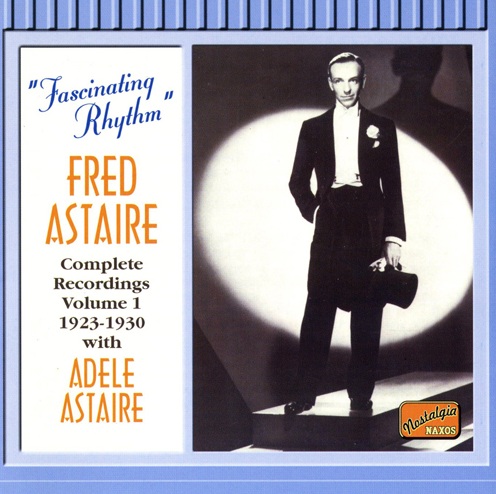Logowanie
OSTATNI taki wybór na świecie
Nancy Wilson, Peggy Lee, Bobby Darin, Julie London, Dinah Washington, Ella Fitzgerald, Lou Rawls
Diamond Voices of the Fifties - vol. 2
Tylko 1000 egzemplarzy!!!
DVORAK, BEETHOVEN, Boris Koutzen, Royal Classic Symphonica
Symfonie nr. 9 / Wellingtons Sieg Op.91
nowa seria: Nature and Music - nagranie w pełni analogowe
Petra Rosa, Eddie C.
Celebrating the art and spirit of music - vol. 3 - Pure
warm sophisticated voice...
Peggy Lee, Doris Day, Julie London, Dinah Shore, Dakota Station
Diamond Voices of the fifthies
Tylko 1000 egzemplarzy!!!
SAMPLER - STS DIGITAL, Buddy Tate, Milt Buckner, Walace Bishop
Jazz Masters - Legendary Jazz Recordings - v. 1
proszę pokazać mi drugą taką płytę na świecie!
Chesky! Niezmiennie perfekcyjny
Winylowy niezbędnik
ClearAudio
Double Matrix Professional - Sonic
najbardziej inteligentna i skuteczna pralka do płyt winylowych wszelkiego typu - całkowicie automatyczna
Fred Astaire
Fascinating Rhythm - Vol.1 - with Adele Astaire

- Fred Astaire - vocal
Complete Recordings 1923 - 2930
>>> Większa okładka A <<< >>> Większa okładka B <<< "No performer ever made dancing look easier, or worked harder at it. Suave, elegant, sophisticated, dapper... to generations, Fred Astaire was "Mr Smooth". He was also a fine dramatic actor, and the songs he introduced unfailingly became standards. Frederick Austerlitz was born on l0th May, 1899 in Omaha, Nebraska When he was barely a toddler, he and his older sister Adele were enrolled in dancing school; before he turned seven, Mrs Austerlitz had moved the children to New York, where they would soon become professional dancers in vaudeville, revues and Broadway shows. Their first Broadway success was Over The Top, in 1917, followed by The Passing Show of 1918, in which Fred was called "an agile youth, and apparently boneless". More musicals led to stardom in For Goodness' Sake in 1922; the Astaires stole the show and at the same time began their life-long friendship with the Gershwin Brothers. Among the many musicals to feature Fred and Adele were two more Gershwin productions, Lady Be Good and Funny Face The Astaires' last Broadway appearance together was The Bandwagon, in 1931. By this time, Fred and Adele had been the toast of Broadway and London for a decade. Though it was Fred who had been the perfectionist, pushing the team towards triumph after triumph, it was Adele who was generally considered to be the more talented one; and by 1931, on stage for twenty-five years, she wanted out. Adele accepted the hand of Lord Cavendish, and retired from performing. She died in 1981. But Fred had never worked as a solo act, and had misgivings about his future. He wasn't the "romantic" type being sought for movies. The results of his screen tests included such comments as "enormous ears", "bad chin line", "balding", "can't sing", "can dance a little". but what did come across, to the surprise of the movie moguls, was his undeniable charm. Through the next three decades, Fred Astaire would be featured in such successes as Flying Down to Rio, Top Hat, Roberta, Swing Time, Damsel in Distress, You Were Never Lovelier, Easter Parade, Silk Stockings, the Band Wagon and Funny Face. His partners would include Ginger Rogers, Joan Fontaine, Rita Hayworth, Judy Garland, Cyd Charisse and Audrey Hepburn. Beginning in the fifties, Fred would receive critical acclaim for his television specials, as well as for his dramatic acting in On the Beach and The Towering Inferno. Fred was still synonymous with grace and charm when he died 22ndJune, 1987. This first volume of the Astaire legacy consists of recordings made in London between 1923 and 1930. The songs from the stage production Stop Flirting (the English version of For Goodness' Sake) were acoustically recorded for HMV, a single disc by Fred and Adele with a theatre-style orchestra, a common practice on English original cast recordings. The remaining discs are for Columbia, electrically recorded; six songs from Lady Be Good, with George Gershwin at the piano on four of the sides (and providing vocal commentary during Fred's first recorded tap-dancing solo); six songs from Funny Face; and four classic Astaire solos from 1929 and 1930. To maintain the integrity of the original cast recordings, Adele's solos have been included, but those sides which features neither of the Astaires have not." David Lennick





























